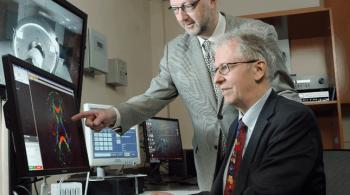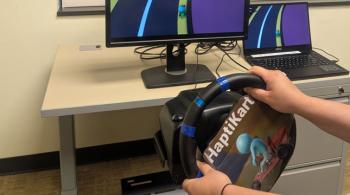By Kristina Rolfes
Vaccines, antibiotics, mapping of the human genome—every medical breakthrough in history was born through research, and at the heart of treatment research are clinical trials—testing of new medications, devices, or interventions in an attempt to better understand and treat a disease or disorder. At Kennedy Krieger’s Clinical Trials Unit, researchers gather scientific evidence so that our clinicians and families can make the most informed decisions about care.
Until fairly recently, very few medications prescribed by doctors in the U.S. had been studied in children. By necessity, doctors used information from adult studies and adjusted the dose to a child’s weight. The problem with this approach, though, is that children are not small adults. Medications may affect children differently because children do not metabolize medications in the same way as adults.
Fortunately, the landscape is changing. In the past two decades, federal legislation has incentivized, and in some cases required, pharmaceutical companies to invest in conducting pediatric clinical trials, which help ensure that drugs prescribed to children are safe and effective in treating a disorder at a certain dosage. As a result, we are learning more than ever before about how to effectively treat children. Dr. Robert Findling, vice president of Psychiatric Services and Research at Kennedy Krieger Institute and the director of Child and Adolescent Psychiatry at The Johns Hopkins University, notes that when he completed his training in the 1990s, there was very little scientific rigor on most of the treatments for children with emotional or behavioral difficulty. “We were flying blind or going on anecdote,” he says. “Now, the amount of information that is reliable and scientifically rigorous has increased in a way that I could have only dreamed of.”
Every clinical trial is approved and monitored by the Johns Hopkins Institutional Review Board—an independent committee that ensures that the trial is ethical and that the rights of participants are protected. And all participants, or their parents or guardians, are informed about the treatment they will receive and any known risks or potential benefits of the treatment before they consent to the trial, a process known as informed consent.
For many families, clinical trials at Kennedy Krieger offer access to promising new treatments not available anywhere else—treatments that might make a difference in their child’s quality of life—while receiving extra care and monitoring from doctors and researchers who have expertise in pediatric psychiatry and neurological disorders. For others, there is a larger purpose: a chance to help others by advancing research that may lead to medical breakthroughs and improved care for the next generation. At the Clinical Trials Unit, every trial adds to a greater understanding of pediatric disorders, leading us one step closer to finding treatments, preventions, and cures.















